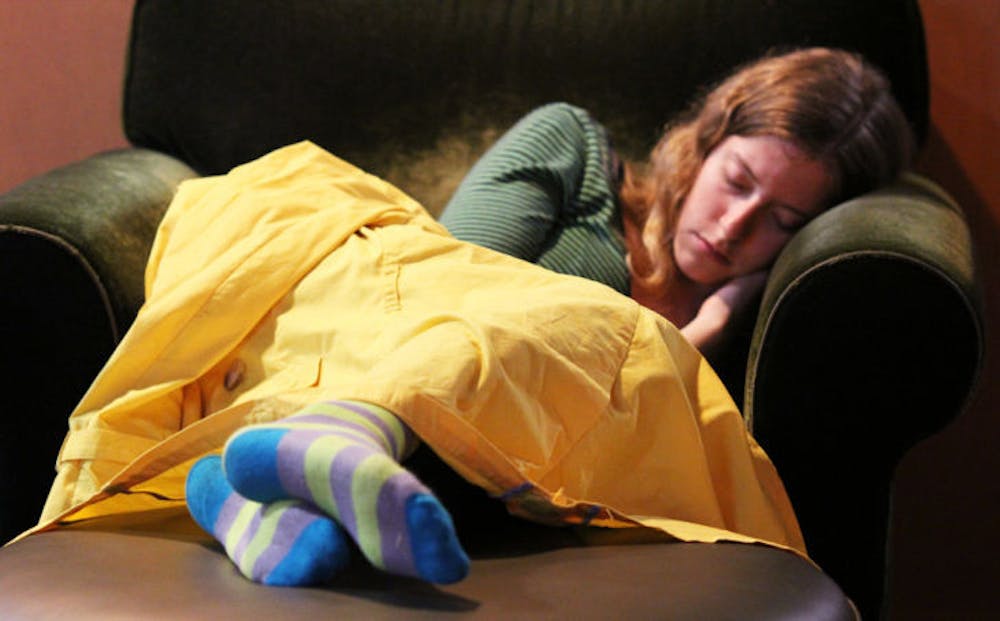UF student Colby Royce knew pulling an all-nighter for her financial accounting exam wasn’t the best idea for her health.
But she didn’t know her lack of sleep could potentially cause her to gain weight.
Although people burn more calories when sleep deprived, they also tend to overeat, causing weight gain, according to a new study from the University of Colorado Sleep and Chronobiology Laboratory.
The research showed that sleep deprivation can cause physiological and behavioral changes to occur, which leads people to eat more.
“When I study late at night, all I drink is Starbucks lattes,” said Royce, a 20-year-old finance sophomore. “You’re trying to keep yourself going, so you’re drinking fattening coffees or Red Bulls or eating just to keep yourself awake and doing something.”
In the study, adults were limited to five hours of sleep per day for five days.
On average, participants gained two pounds, turning to carbohydrates and fats for the energy boost they needed to stay awake.
Royce said packing healthy snacks or avoiding places that sell high-calorie drinks are some ways to combat the potential weight gain if someone plans to get little sleep.
The study showed that with nine hours of sleep a night, participants lost the weight they initially gained.
Sarah Martin, a sleep management wellness coach at GatorWell Health Promotion Services, said she recommends college students get an average of seven to nine hours of sleep per night.
“Every aspect of your wellness is intertwined,” she said. “If something is going poorly in one area, it could hurt the other areas.”
A student sleeps in the Hub on Tuesday morning. A new study by the University of Colorado-Boulder found that a lack of sleep can lead to weight gain.






